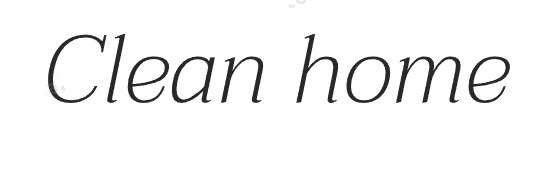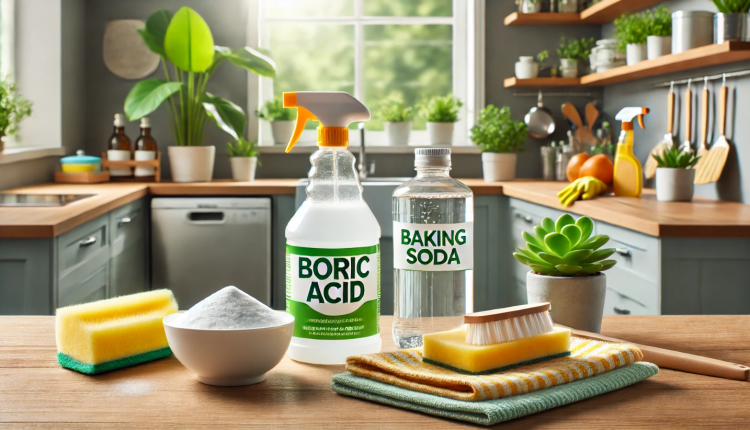Boric Acid in Eco-Friendly Cleaning: A Natural Solution for a Healthier Home
In an era where people are becoming increasingly conscious of the chemicals they use in their homes, boric acid has emerged as a popular eco-friendly cleaning agent. With its powerful antiseptic and antifungal properties, boric acid offers a natural and effective way to disinfect surfaces, eliminate mold, control pests, and even act as a bleaching agent—all without the harsh effects of synthetic cleaners.
This article explores the role of boric acid in environmentally friendly cleaning, detailing its benefits, applications, and safety considerations.
Why Choose Boric Acid for Eco-Friendly Cleaning?
Traditional cleaning products often contain harmful chemicals that can contribute to indoor air pollution, trigger allergies, and negatively impact the environment. Many commercial disinfectants, mold removers, and insecticides contain toxic substances that can linger in the air and on surfaces, posing risks to both humans and pets.
Boric acid, on the other hand, is a naturally occurring compound that provides powerful cleaning properties without the use of synthetic additives. It effectively kills bacteria, fungi, and insects while being biodegradable and less harmful to the environment.
Antiseptic and Antifungal Properties
One of the key reasons boric acid is so effective in cleaning is its natural antiseptic and antifungal properties. It works by disrupting the cell membranes of bacteria and fungi, preventing their growth and spread. This makes it a valuable ingredient in homemade disinfectants and mold removers.
Disinfecting Surfaces with Boric Acid
- Kitchen and Bathroom Cleaning: A solution of boric acid and water can be used to wipe down countertops, sinks, and toilet bowls, effectively eliminating bacteria and preventing mildew buildup.
- Cutting Board Sanitization: Wooden cutting boards can harbor bacteria from raw meats and vegetables. Sprinkling boric acid on the board, scrubbing it with a brush, and rinsing thoroughly can help maintain a hygienic surface.
- Garbage Can Deodorizer: Sprinkling a small amount of boric acid in the bottom of a garbage can helps neutralize odors and prevent bacterial growth.
Unlike some commercial disinfectants, boric acid does not leave behind a strong chemical smell, making it a great option for those sensitive to artificial fragrances.
Fighting Mold with Boric Acid
Mold is a persistent problem in many households, especially in humid environments. It can cause structural damage to homes and trigger respiratory problems in sensitive individuals. Boric acid is highly effective in eliminating mold and preventing its return.
How Boric Acid Works Against Mold
- Moisture Absorption: Boric acid draws moisture from surfaces, creating an environment where mold struggles to grow.
- Cell Wall Disruption: It interferes with the fungal cell structure, effectively killing mold spores and preventing further spread.
- Long-Lasting Protection: Unlike bleach, which only removes visible mold without preventing regrowth, boric acid creates a protective barrier against future mold formation.
Application for Mold Removal
- Prepare a Boric Acid Solution: Mix one cup of boric acid powder with a gallon of warm water.
- Apply to Moldy Surfaces: Use a spray bottle to coat affected areas, allowing the solution to soak for at least 15 minutes.
- Scrub and Wipe Clean: Use a scrub brush to remove mold stains, then rinse with clean water.
- Prevent Future Growth: Lightly dust boric acid in damp-prone areas such as basements, bathrooms, and kitchens.
By using boric acid instead of chemical mold removers, homeowners can maintain a healthier indoor environment while reducing their ecological footprint.
Eco-Friendly Pest Control with Boric Acid
Pesticides are often loaded with toxic ingredients that can be harmful to children, pets, and beneficial insects. Boric acid provides a natural alternative for controlling common household pests such as cockroaches, ants, termites, and fleas.
How Boric Acid Eliminates Pests
- Dehydrates Insects: Boric acid absorbs moisture from insects’ bodies, causing them to dehydrate and die.
- Affects Digestive Systems: When ingested, boric acid disrupts the metabolism of insects, leading to their eventual death.
- Non-Repellent Action: Unlike chemical sprays that repel pests, boric acid remains undetectable, allowing insects to carry it back to their nests and eliminate entire colonies.
Pest Control Applications
- Cockroach and Ant Bait: Mix boric acid with sugar and flour to attract and poison cockroaches and ants. Place small amounts in areas where these pests are commonly seen.
- Flea Treatment for Carpets: Lightly sprinkle boric acid on carpets and pet bedding, leave it for a few hours, and then vacuum thoroughly.
- Termite Prevention: Dusting boric acid on wooden structures can help protect them from termite infestations.
Unlike commercial pesticides, boric acid does not contain harmful synthetic compounds, making it a safer option for eco-conscious households.
Boric Acid as a Natural Bleaching Agent
Many conventional bleaching agents contain chlorine, which can release toxic fumes and irritate the skin. Boric acid offers a gentler alternative for whitening clothes and removing stains without the harsh side effects of chlorine bleach.
How Boric Acid Works as a Bleach
- Breaks Down Stains: Boric acid helps loosen dirt and stains from fabric fibers, making it easier to remove them in the wash.
- Brightens Whites: It restores the brightness of white clothing without causing fabric damage.
- Neutralizes Odors: Boric acid deodorizes laundry, leaving clothes fresh and clean.
Using Boric Acid for Laundry and Cleaning
- Laundry Whitening: Add half a cup of boric acid to the washing machine along with detergent to brighten whites and remove sweat stains.
- Tile and Grout Cleaning: Mix boric acid with water to form a paste, apply it to stained grout, and scrub with a brush to restore cleanliness.
- Carpet and Upholstery Freshener: Sprinkle boric acid on carpets before vacuuming to eliminate odors and refresh fibers.
By replacing traditional bleach with boric acid, households can achieve effective cleaning results while reducing exposure to toxic chemicals.
Safety Considerations When Using Boric Acid
Although boric acid is a safer alternative to many chemical cleaners, it should still be used with caution:
- Keep Out of Reach of Children and Pets: While boric acid is not as toxic as some commercial cleaners, ingestion in large quantities can be harmful.
- Use Protective Gloves: When handling boric acid in powder form, wearing gloves can help prevent skin irritation.
- Store in a Dry Place: To maintain its effectiveness, boric acid should be stored in an airtight container away from moisture.
When used responsibly, boric acid provides a safe and natural solution for cleaning and pest control.
Conclusion
Boric acid is a powerful yet environmentally friendly cleaning agent with a wide range of applications. Its antiseptic and antifungal properties make it an effective disinfectant and mold remover. As a natural insecticide, it helps control household pests without the need for harmful pesticides. Additionally, its gentle bleaching action provides an eco-friendly alternative to conventional laundry whiteners.
For those looking to adopt a more sustainable approach to home cleaning, boric acid offers a practical and effective solution. By incorporating it into daily cleaning routines, households can achieve a cleaner, healthier, and more environmentally responsible living space.

